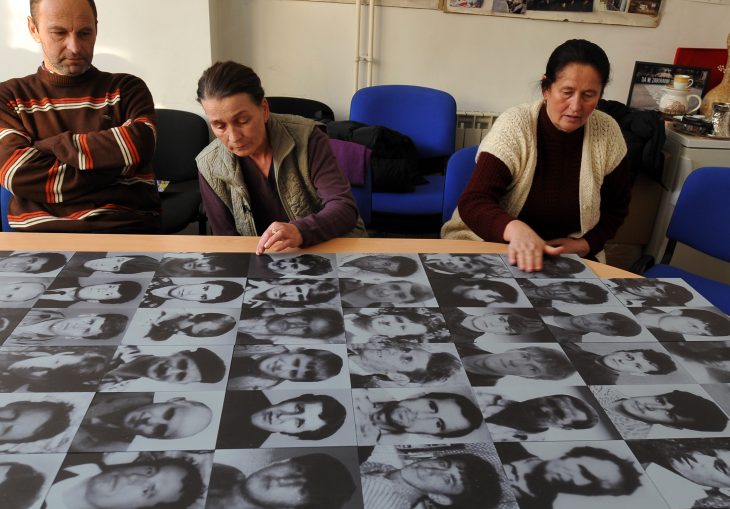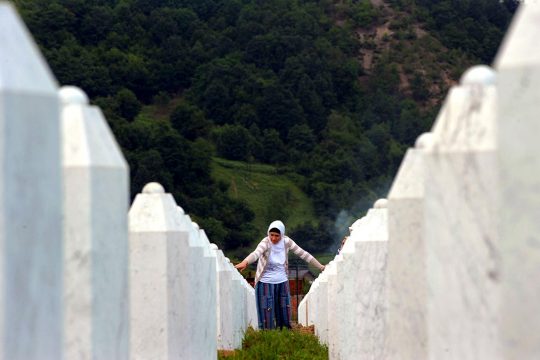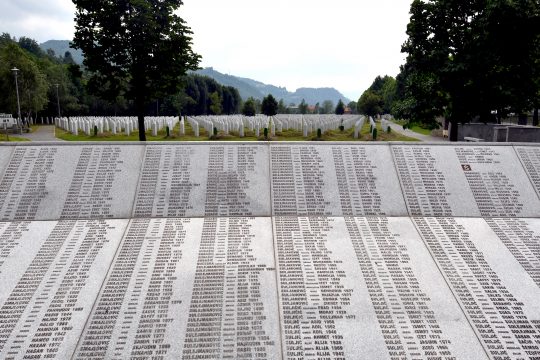On November 22, the International Criminal Tribunal for the former Yougoslavia (ICTY) is to hand down its verdict on Bosnian Serb military commander Ratko Mladic. This is the last verdict in a trial court of the Tribunal, which was set up by the United Nations in 1993. The ICTY is due to close its doors on December 31, 2017, after 25 years of investigations and trials, and after convicting 83 individuals for crimes committed during the conflicts in former Yugolsavia. Prosecutor Serge Brammertz talked to JusticeInfo about the legacy of the ICTY, the first international tribunal to be created after the Nuremberg and Tokyo trials.
Justice Info: What is your view of the Tribunal’s legacy?
Serge Brammertz: Despite all the problems that we see today in former Yugoslavia -- glorification of war criminals and denial of crimes – I think the situation would be even worse had the Tribunal not existed. We have millions of pages, testimonies, evidence that sheds light on what really happened during the conflict in former Yugoslavia. This is information that cannot be ignored by those who are trying to rewrite history. As for the leaders, I think that if they had not been prosecuted and convicted, they would have had an even greater impact on the societies of former Yugoslavia. Prosecuting the crimes is really a starting point to give reconciliation a chance.
You mentioned glorification of war criminals?
Unfortunately we see among the new generations an attitude of hatred where we might have hoped that the current generation of politicians would say the opposite: never again, never another war. On the contrary, people are trying to glorify the attitude of war criminals. It is difficult to imagine that a war criminal convicted in Germany could today have a university building named after him, but that is the case for Radovan Karadzic, who was sentenced to 40 years in prison. A few months ago, the Eduction Minister of Republika Srpska (RS) said he wanted to ban from history books all reference to the sieges of Sarajevo and Srebrenica, and the RS president said it would be a good thing “because that never happened”. Faced with that, it is important to have all this documentation. Recently, General Lazarevic was appointed professor at the Military Academy, and the Defence Minister said there was no longer any need to feel uncomfortable about acts of the past. This is a step backwards, and I hope the international community will react, because I think that as European citizens we cannot tolerate it. I have tried to explain on several occasions that it is one thing to have soldiers fighting against soldiers, but the Geneva Conventions are there to give a little bit of humanity to conflict. All the people who have been convicted by this Tribunal were convicted because they assassinated prisoners, allowed their soldiers to rape women, allowed their élite snipers to shoot children playing in Sarajevo, killed elderly people who could not escape quickly enough. Those are the crimes for which people are prosecuted and convicted, and there is clearly nothing heroic about them. But it is very difficult to get that idea across.
Some people have accused the Tribunal of being biased, of being anti-Serb. What do you say to that?
In varying degrees, crimes were committed by all the parties to the conflict. And I believe that the statistics of the Tribunal reflect the reality in terms of responsibilities. But it is clear that some cases could not be carried through because the people concerned died or were acquitted. We were very unhappy with some acquittals. I am thinking of Gotovina, Perisic, two acquittals on appeal that I really wasn’t at all expecting. As prosecutors we are only one party to the trial, but that did a lot of harm to perception of the Tribunal.
But it is not the Tribunal’s role to write the history of the conflict. We do not have a complete picture, we have worked on events that were part of the conflict. For us, collecting material elements is to establish the reality of the crime and present it to the court. On Srebrenica, for example, many defence teams argued that the people in mass graves were combatants. Fortunately our teams on the ground did forensic work to show that people who had their hands tied behind their back and a bullet in the neck had not been killed in combat. We have 10 million pages on the crimes committed in the former Yugoslavia. We have also given access to these documents to prosecutors in former Yugoslavia, where war crimes trials are continuing.
As the Tribunal prepares to close its doors, what is judicial cooperation like with the countries of former Yugoslavia?
If we have today a judicial system that works and magistrates specialized in the prosecution of war crimes, it is certainly also the result of the Tribunal’s existence. As soon as I arrived, I met with magistrates from the region. What they needed was access to information. Last year alone, 120,000 pages were used in national trials.
It is clear that the different governments now have a much more nationalist approach with regard to international justice. The main problem is cooperation between the countries of former Yugoslavia. There are judgments sent to Belgrade to be implemented, individuals convicted in Sarajevo who have gone to Serbia, but Serbia does not extradite its nationals, and nor does any country in the region. There is clearly no will. In Croatia, the previous government took a decision not to implement requests for judicial cooperation mentioning ‘joint criminal enterprise’ or any reference to the regime in place during the war. I find it unacceptable that a country belonging to the European Union take a political decision to ban its own judicial authorities from cooperating on certain types of case. It is up to the judicial authority to do its work, and if there are problems of judicial categorization the judges will do their work, but one cannot take a political decision to ban cooperation on certain cases.





